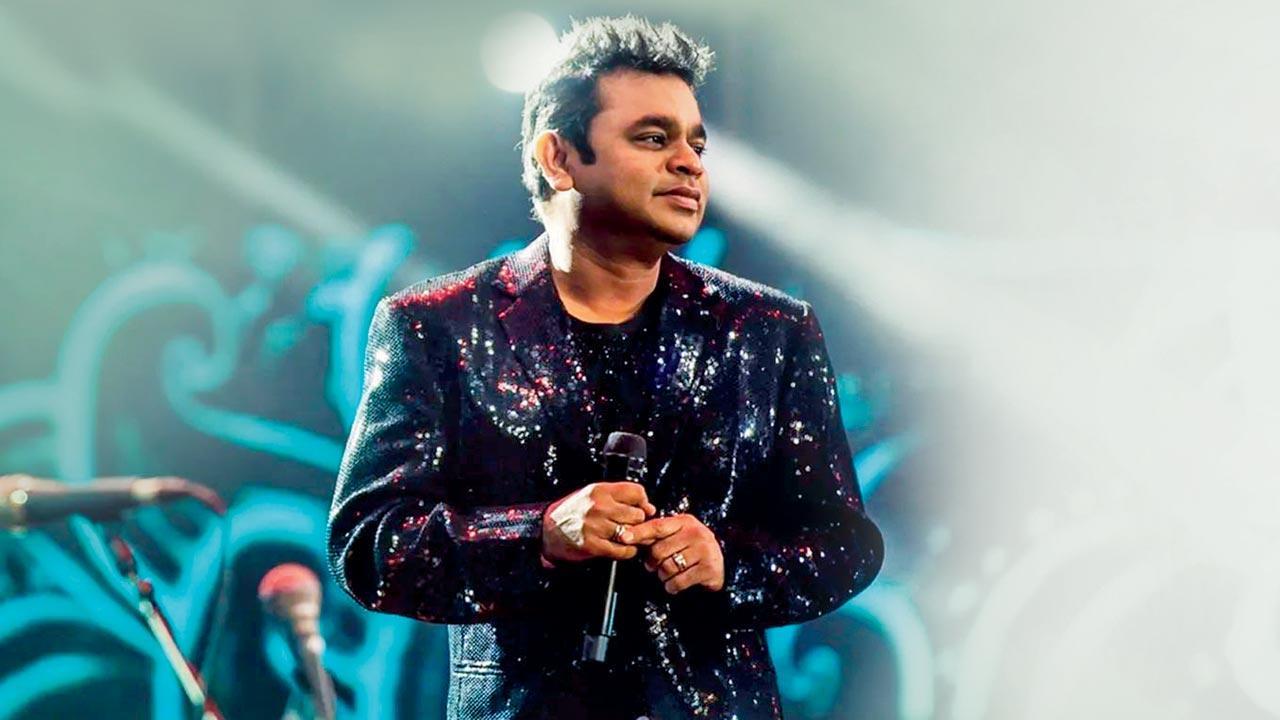In a candid chat with mid-day to discuss his upcoming release, Headhunting to Beatboxing, AR Rahman discloses why he stays away from political banter, and the pain points in the Indian music industry

Pic/Instagram
Touted as an offering that “exemplifies the energy, ambition and new-found confidence of Naga youth”, AR Rahman’s feature documentary, Headhunting to Beatboxing was unveiled at the 77th Cannes Film Festival in France. “From the ancient traditions of headhunting tribes to the musical renaissance in the state, the documentary promises to take audiences on an immersive and enlightening musical anthropological odyssey,” read a statement released by the Nagaland government.
ADVERTISEMENT
In this interview, Rahman—who has also produced the film—chronicles how the artistes of the north-eastern state became the muse of his next piece of work.
Edited excerpts of the interview:
What drew you to the story of Headhunting to Beatboxing?
It was a discovery. I was invited to Nagaland. I went with apprehension, because there are rumours relating to the history of Nagaland, [especially the practice of] head-hunting. I discovered this film organically and called Rohit [Gupta, director]. I told him that he should see the Hornbill festival that was taking place in Nagaland, where young people were also turning up. He came, and started shooting. The government was friendly because they wanted this to happen. They have a minister for music! It was fascinating to see the initiatives they have taken. I felt something needed to be done.
When you watch it, you will realise that two things stand out—one is that this [film depicts] India, and the other is that it is a reflection of the inclusivity that we should aim to inculcate in society. I see a section of the country that is completely ignored. That’s not good. It’s like, we have a family, but three people aren’t fed properly. It is odd.
You unveiled the film’s teaser at the recently concluded Cannes Film Festival. When you are present on an international platform, do you carry the pressure of being the Indian icon, AR Rahman?
I don’t try to be anybody else. On social media, and on our website, we are transparent about what we stand for. I don’t put out any [material that is] anti-government, because, as a musician, I should maintain a neutral stance. My music should be the haven that people seek solace in. I don’t have time for negative things. My music needs peace and healing.
But, while creating any piece of music, does the pressure to cater to your global audience play on your mind?
When Roja [1992] won a National Award, people said, ‘Isn’t it too early for you to get a National Award for your first film?’ The bar was set high. I felt I had nothing left to give, as I had given everything to my first film. But then, you meet a new team on a new film, and it gives you hope. You can create something new. For me, with the first film itself, that pressure has existed. That’s the reason I began to slow down. While others were producing songs in seven hours, I would take weeks or months to create [the soundtrack]. I slowed down intentionally, and the industry took note. They realised that we could move towards quality and be responsible instead of [urging musicians] to finish five songs in a day. Song-writing is an art that should be nurtured. Give it the spiritual energy that people can access.
At that time, my intention was to charge more and do less. It was also important to focus on the life happening around you. When you work, you become a slave, and you don’t derive anything from life. You are just cannibalising what has come before. Unless you learn new things, how can you give people something novel? And to learn new things, you need to meet people, see what’s happening in the world, and spend time with your family.
How do you look at the music culture of today’s India?
It’s great that non-film music is becoming popular. If that didn’t happen, people would shell out a lot of money into [making] music that the masses don’t even like. They may say that the song has crossed many million views, but people won’t even know what the hook line is. The game of paid views is over. People are listening to different kinds of songs. But, there are certain lyricists who are bringing back the golden age of the ’50s and ’60s. Artistes like Irshad Kamil, and Amitabh Bhattacharya have brought worthiness into lyricism. They bring a new kind of beauty to the words that they write. I feel, there could be more progress in lyric writing, especially in its ability to convey the philosophies of life, rather than simply stating, ‘I love you. Love me.’ I like lyrics that are symbolic. There’s scope for a revolution there.
 Subscribe today by clicking the link and stay updated with the latest news!" Click here!
Subscribe today by clicking the link and stay updated with the latest news!" Click here!







